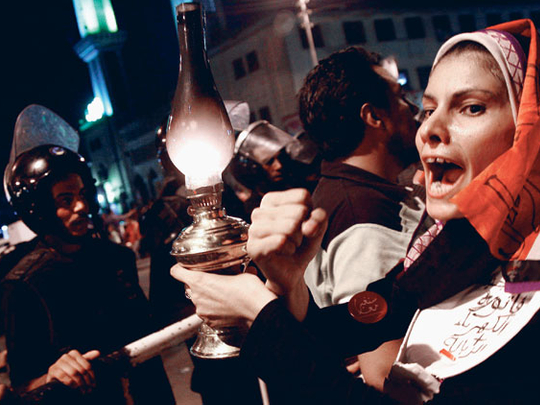
Cairo: Since Muslims began their daily dawn-to-dusk fast for Ramadan two weeks ago, Egypt has been hit by its worst power outages in decades.
The cuts at the height of summer with daily temperatures hovering around 38 degrees Celsius, along with rising food prices and water shortages, have Egyptians fuming, sweating and cursing during a month in which their sacrifices are supposed to bring them closer to God.
Newspapers nearly every day run photographs of families huddled in near darkness around candles or oil lamps. And Egyptians are venting their frustration on the government, adding to a list of grievances over what critics argue is its rampant disregard for anything other than catering to the elite and holding on to power.
"They often cut us off 15 or 20 minutes after iftar," said Ali Ebrahim, a 23-year-old university student who lives in one of Cairo's most crowded, low-income neighbourhoods, referring to the sunset end of fast meal.
Too much
"That hardly gives us enough time to pray and eat. What makes it worse is that when the power is off, so is the water. So, you have no electricity, you are sweating and you cannot cool off with a shower," he added. "It's too much."
Last week, an angry crowd temporarily blockaded part of a major highway south of Cairo with a barricade of burning tyres. Others have called on the embattled electricity minister to quit while newspaper reports maintain that the outages have led to a spike in crime in parts of the country.
Egyptian officials say the blackouts — that mostly hit during the evenings for up to three hours even in the swankiest of Cairo neighbourhoods — are necessary to protect the national grid from collapse as a result of higher-than-usual consumption caused by an enduring heat wave.
They have sought to reassure the public with a flurry of announcements about bolstering power capacity in coming months, while urging consumers to reduce waste. They have also debunked reports in the country's independent media that the export of natural gas to Israel has left them with insufficient fuel to run their gas-fired power stations.
Complaints about services — or the lack of them — are not new in Egypt, where nearly half of the 80 million citizens live below or near poverty-level income of about $2 (Dh7.34) a day.












